The Institute for Ideas and Imagination Announces Third Class of Fellows
The new Fellowship class of 15 scholars, writers and artists will begin their residencies at the Paris Institute in January 2021.
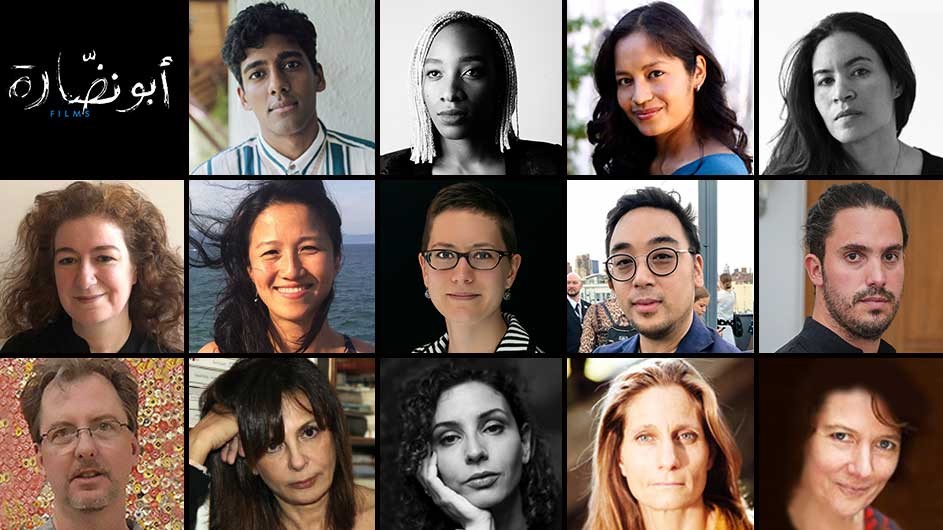
Early next year, a group of 15 outstanding filmmakers, novelists, composers, cultural theorists, linguists and architectural historians will begin their fellowships at Columbia’s Institute for Ideas and Imagination. Located within Reid Hall and working closely with the Columbia Global Centers | Paris, the Institute is a presidential global initiative created to transform the intellectual practices of the University by bringing together artists and scholars from a wide range of disciplines to engage with one another, and with faculty and students, while pursuing their own work.
Institute for Ideas and Imagination
“Global in their reach, our new class of Fellows collectively demonstrate the innovative and searching ways both the creative arts and research scholars are engaging with the present and its most urgent concerns,” said Mark Mazower, founding Director of the Institute and the Ira D. Wallach Professor of World Order Studies in Columbia’s History Department. “With this extraordinarily diverse and youthful Fellowship class, we look forward to enriching the pedagogic and research life of the University and continuing the Institute's mission of fostering interactions between Columbia’s faculty and brilliant writers, composers and artists from around the world.”
Paul LeClerc, Director of Columbia Global Centers | Paris, who was instrumental in guiding the Institute’s development, said: “The diversity of talents, accomplishments, interests and backgrounds in this brilliant new group of Fellows is another home run for the Institute, Reid Hall and Columbia.”
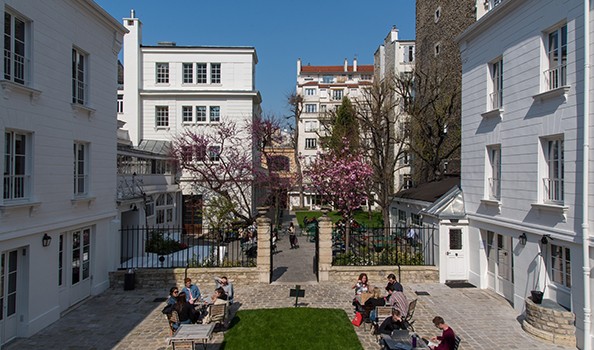
Members of the third class of Fellows come from Asia, Africa, Europe, North America and South America. They include an anonymous film collective illuminating the civil war in Syria, a human rights photographer chronicling the back streets of Rio de Janeiro and the colonial penal colonies of Cape Verde and a young visual artist exploring perceptions of self, place and work in West Africa.
Short-Term Visits for Faculty and Students
The Institute has been responding to the COVID-19 global health crisis by shifting its operations online and amplifying its digital presence. Its regular series of public talks and discussions across the span of the creative arts and scholarship have continued, virtually, as have original productions by Fellows. These include a new musical collaboration between poet Fiona Sze-Lorrain and composer Pauchi Sasaki, art and essays by Bill Sharpe and a short film from former nuclear testing sites in French Polynesia shot by physicist Emlyn Hughes.
Highlights from the 2019-2020 academic year include the launch of the Stavros Niarchos Foundation Public Humanities Initiative, which selected seven projects engaging high school students, refugees, local museums and community activists based in Greece for collaboration with Institute Fellows and other members of the Columbia community. The Institute also established a new public arts series on the Morningside Heights campus in New York—Institute at the Maison—which featured former Fellows Tash Aw, Zaid Jabri and Xiaolu Guo talking about their work at Columbia’s Maison Française.
2021 Fellows

Founded in 2010, Abounaddara is a collective of Syrian filmmakers who work together under conditions of anonymity. Its short films, uploaded on Vimeo, feature nameless people in an aesthetic that blends the codes of documentary cinema, contemporary art and new media. The works have been screened at numerous film festivals and art biennales and have received several awards. Abounaddara’s current project, “The Promise of Spring and the History of Images,” elucidates images of the Arab Spring and its unfulfilled promise through a re-editing of early cinematic representations of Syria and its people.
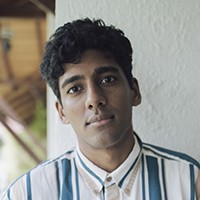
Anuk Arudpragasam, Sri Lanka, Columbia University
A Sri Lankan Tamil novelist, Anuk Arudpragasam received his doctorate in philosophy from Columbia University in 2019. His first novel, The Story of a Brief Marriage, won the 2017 DSC Prize for South Asian Literature and was shortlisted for the 2017 Dylan Thomas Prize. At the Institute he will be working on Exile from the Senses, a book-length work of non-fiction that moves across the genres of philosophy, literary essay, anthropology and memoir.
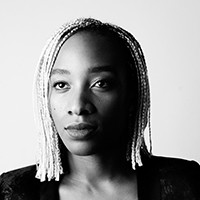
Karimah Ashadu, United Kingdom/Nigeria
Karimah Ashadu is a British-Nigerian visual artist based in Hamburg. Her practice is concerned with perceptions of self and place, and notions of labor pertaining to the socio-economic development of Nigeria and West Africa. At the Institute, Ashadu will develop the script for her first feature film, Saltmine, an experimental docu-fiction about independence, labor, and patriarchy in contemporary Senegal.
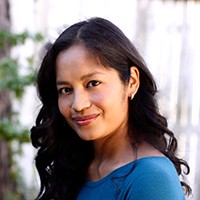
Denise Cruz, United States, Columbia University
Denise Cruz is an Associate Professor of English and Comparative Literature at Columbia University. Her research explores national, regional and global dynamics in North America, the Philippines, and Asia, and their effects on how we think about gender and sexuality. She is the author of Transpacific Femininities: The Making of the Modern Filipina (Duke UP, 2012). At the Institute, she will be working on Made in the Philippines: Global Fashion and the Rise of the New Silk Road, an analysis of the rich, transnational history of Filipino couture from the 1940s to the present.
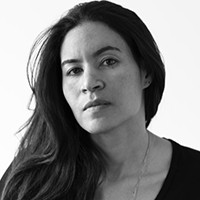
Yasmine El Rashidi is the author of The Battle for Egypt, Dispatches from the Revolution, and Chronicle of a Last Summer, A Novel of Egypt. She writes on politics and culture for The New York Review of Books and is an editor of the Middle East arts and culture journal Bidoun. At the Institute, she will work on Book II of The Last of The Revolutionaries Bow Down, a multi-genre trilogy that probes a pivotal moment in Egypt's history—its defeat to Israel in the ‘67 war.
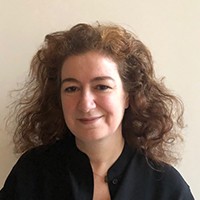
Lamia Joreige is a visual artist and filmmaker living and working in Beirut. She uses archival documents and elements of fiction to reflect on history and its narration and the relationship between individual stories and collective memory. Uncertain Times, the project she will be working on at the Institute, investigates through various media a turning point in the history of the Middle East (1913-1920): the fall of the Ottoman Empire and the forcible establishment in Lebanon, Syria and Palestine of the French and British mandates.
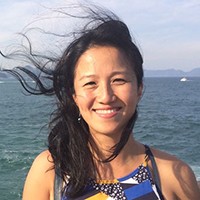
Ana Paulina Lee, Brazil/United States, Columbia University
Ana Paulina Lee is a cultural historian and assistant professor of Latin American and Iberian Cultures at Columbia University, where she teaches courses on modern Brazilian literature, film and visual cultures. She is the author of Mandarin Brazil: Race, Representation, and Memory (Stanford University Press), winner of the 2019 Antonio Candido Book Prize for Best Book in the Humanities. At the Institute, she will be working on her new book Sorcery Archives: Spiritualism, Race, and Aesthetics in Modern Brazil, which examines the legacies of Portuguese colonialism in modern Brazil.
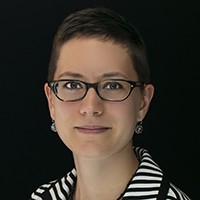
Sky Macklay, United States, Columbia University
Sky Macklay is a composer, oboist and installation artist and is Assistant Professor of Music at Valparaiso University in Northwest Indiana. She received her DMA in musical composition in 2018 from Columbia University. Her music is conceptual yet expressive, exploring extreme contrasts, audible processes, humor and the physicality of sound, and she has been commissioned by The Fromm Foundation at Harvard University, Chamber Music America, The Barlow Endowment, The Los Angeles Philharmonic and Gaudeamus Muziekweek. In 2015, she was awarded the Ruth Anderson Prize from The International Alliance for Women in Music. Sperm Count Zero, the project she will develop at the Institute, is a large-scale theatrical piece for voice, instruments and electronics dealing with issues of agency and powerlessness in human and animal reproduction.
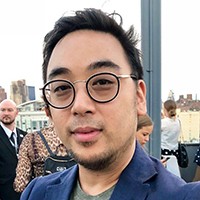
John Duong Phan, United States, Columbia University
John Phan is Assistant Professor of Vietnamese Humanities in the Department of East Asian Languages and Cultures at Columbia University. He is currently completing his first book examining Sinitic influences on the formation of the Vietnamese language, and he is working on the emergence of vernacular literary expression in medieval Vietnam. At the Institute, he will work on Decomposing Linguistic Nationalism: Interlinguality and Genre in the Development of a Vietnamese Vernacular Tradition. While his work focuses specifically on the case of early modern Vietnamese vernacular literature, he is interested in how issues of interlingual cross-pollination and genre figure into the development of other “vernaculars” across the globe and throughout history.
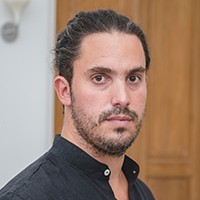
A photographer, João Pina explores global socio-political changes and human rights abuse through the language of visual memory. Exhibited internationally, his images have also appeared in the New York Times and El Pais, among others. During his fellowship at the Institute, Pina will be working on his project about Tarrafal, a former concentration camp in Cape Verde where political dissidents were sent during the Portuguese fascist dictatorship and where his own grandfather was incarcerated. The book and an accompanying exhibition aim to provide a deeply personal visual record of the colonial and political history of his native Portugal.

Joseph R. Slaughter, United States, Columbia University
Joseph R. Slaughter teaches postcolonial literature and theory, human rights, and literary approaches to international law in the Department of English and Comparative Literature at Columbia University. He has published numerous articles on African and Latin American literature, human rights and intellectual property. He is the recipient of a number of prestigious prizes, including a Guggenheim Fellowship (2009). During his fellowship at the Institute, he will be completing The Conscience of Humankind and Hijacking Human Rights, two books on literature, law and human rights.
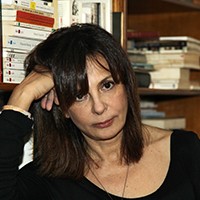
Ersi Sotiropoulos is a poet and novelist who lives in Athens, Greece. Her work has been translated into many languages, and she has been awarded the Greek National Book Prize twice, the Book Critics’ Award, and the Athens Academy Prize, among other distinctions. June, the novel she will be working on at the Institute takes place in a single hour–sixty minutes within the mind of a Greek diplomat in Paris undergoing a brain MRI. Following an imaginary line of human greatness and folly, hope and disillusionment, the book will examine the somehow mystified intersection between money, migration, politics and personal responsibility.

Mila Turajlić is a documentary filmmaker and archive scholar born in Belgrade, Yugoslavia. Her award-winning films have been screened at numerous festivals, including Toronto and Tribeca, and have been released theatrically in France, Germany, UK, US and across the former Yugoslavia. At the Institute, she will work on The Labudovic Reels: Cinematic Solidarity Across the Non-Aligned World, a combination of documentary film, interactive book and video installations for an exhibition investigating the cinematic links between Yugoslavia and the Non-Aligned countries during the 1960s and 1970s. The starting point of the project is material gathered while shooting a documentary film on Stevan Labudovic, the cameraman of Yugoslav President Tito, who was sent by the president to provide images for the liberation movements in Africa, most notably the Algerian Liberation Front.
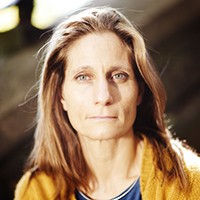
Lynnette Widder, United States, Columbia University
Lynnette Widder is Associate Professor of Practice in Columbia University’s Masters of Sustainability Management program. She is a practicing architect and holds a doctoral degree in architectural history from the Eidegnössiche Technische Hochschule in Zurich, Switzerland. The research she will pursue at the Institute concerns the transformation of architectural thinking, symbolic representation and construction in post-war West Germany, from 1949-59. The book, Year Zero to Economic Miracle: Architectural Debate, Construction and Design in West Germany 1949-59, will be published by the gta Verlag.

Clair Wills is a cultural historian who writes about lived experience in twentieth century Britain and Ireland. Her most recent book, Lovers and Strangers: An Immigrant History of Post-War Britain, won the Irish Times International Non-Fiction Prize in 2017. She is King Edward VII Professor of English Literature at the University of Cambridge. Her current research is on life stories told across the boundaries of carceral institutions, including Mother and Baby Homes in Ireland, and post-war British psychiatric institutions. At the Institute, she will be working on Half-Lives: Life Stories in the Total Institution, a book of creative non-fiction that interrogates the role of memoir and storytelling in recovering the experience of those “buried alive” in British and Irish post-war institutions of containment.
Institute for Ideas and Imagination at Columbia University
For further details about our Fellows and their work, the Institute and its mission, or our fellowships and how to apply for them, please visit our website at ideasimagination.columbia.edu. We welcome short-term visits by Columbia faculty, and we support and host workshops and conferences.
The Columbia Institute for Ideas and Imagination is made possible by the generous support of the Aretê Foundation, the Andrew W. Mellon Foundation, the Stavros Niarchos Foundation and Daniel Cohen, and with additional gifts from Judith Ginsberg and Paul LeClerc, Olga and George Votis, the EHA Foundation and Mel and Lois Tukman.